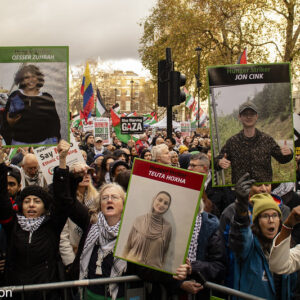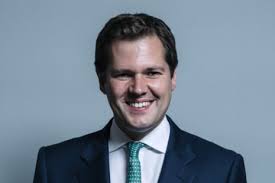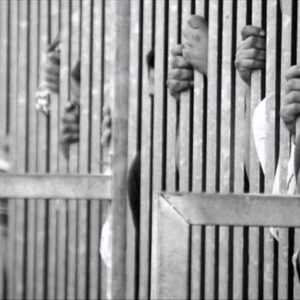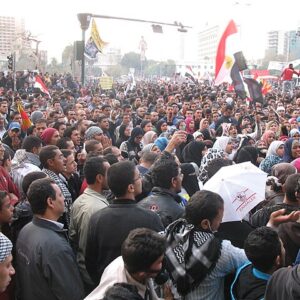Source >> International Viewpoint
What does the DPEF (Government budget plan) express? How is the Italian situation different from France, but also from England and Germany? Building mass meetings of workers to build a path of struggle and strike action is crucial.
The 25 April and 1 May are two dates that are not only symbolic, but concrete expressions of the class struggle in our country and of the protagonismo (active role) of the working classes. The extreme right government continues undisturbed (at least for now) in its pursuit of reactionary and pro-boss objectives. It is occupying key administrative posts in the institutions and in the main public or semi-public economic structures of the Italian capitalist system.
What the DPEF is about
The annual Economic and Financial Planning Document (DPEF) in April confirms certain features of the economic situation and the current basic choices of the bourgeoisie and European capitalist institutions, and by extension those of the Italian government.
To summarize,
![]() There is a particularly difficult international economic situation, so much so that the International Monetary Fund (IMF) forecasts the weakest world growth since 1990 and a very fragile financial system (just think of the collapse of some banks), which is also the result of the partial reorganization of the production networks connected to the contradictory processes of the so-called (very relative) de-globalization of the capitalist economy and, of course, the war in Ukraine
There is a particularly difficult international economic situation, so much so that the International Monetary Fund (IMF) forecasts the weakest world growth since 1990 and a very fragile financial system (just think of the collapse of some banks), which is also the result of the partial reorganization of the production networks connected to the contradictory processes of the so-called (very relative) de-globalization of the capitalist economy and, of course, the war in Ukraine
![]() It takes the decision to prioritize the fight against inflation and therefore to put an end to a phase of expansionist policies, in other words, the reduction of budget deficits and the pure and simple renewal of austerity policies as we have known them in past years; all this means increasingly significant cuts in public health and social spending, pensions and, of course, government action to stop any movement of the working classes to recover what inflation from profits has stolen from them
It takes the decision to prioritize the fight against inflation and therefore to put an end to a phase of expansionist policies, in other words, the reduction of budget deficits and the pure and simple renewal of austerity policies as we have known them in past years; all this means increasingly significant cuts in public health and social spending, pensions and, of course, government action to stop any movement of the working classes to recover what inflation from profits has stolen from them
![]() Therefore the government is shrinking public spending in order to ensure a strong primary surplus to reduce the state’s debt (the surplus amounts to 6 billion in 2024 and 26 and 45 billion in the following two years), through the attack on the conditions of the weakest sectors of society, the reduction of pensions and the containment of salaries. All this is combined with the Meloni government’s strong focus on safeguarding the economic privileges of the petty and middle bourgeoisie in the most diverse sectors of activity, (its main social and electoral base) while managing the economy according to the profits and financial rents of the big bourgeoisie. It knows full well that it must guarantee its fundamental interests. [1] Military spending continues to increase.
Therefore the government is shrinking public spending in order to ensure a strong primary surplus to reduce the state’s debt (the surplus amounts to 6 billion in 2024 and 26 and 45 billion in the following two years), through the attack on the conditions of the weakest sectors of society, the reduction of pensions and the containment of salaries. All this is combined with the Meloni government’s strong focus on safeguarding the economic privileges of the petty and middle bourgeoisie in the most diverse sectors of activity, (its main social and electoral base) while managing the economy according to the profits and financial rents of the big bourgeoisie. It knows full well that it must guarantee its fundamental interests. [1] Military spending continues to increase.
We are therefore see the continuation of Draghi’s (previous government of ‘national unity’) policies, corrected according to the new conditions of the capitalist economy. This is combined with an ideological, cultural and regressive offensive in terms of rights which is indispensable to produce bogus enemies and objectives for the workers. It attempts to conceal the anti-working-class reality of the government’s choices. The government is constructing an ideological narrative (false consciousness) of the country’s history, in order to erase the significance of the struggles of the working class, justly commemorated on the 25 April (Liberation from fascism day) and I May.
Nor should the government’s choice to use the three billion freed from the small gap between the actual deficit and the programmed deficit to reduce the so-called tax take on middle and low incomes mislead us. It is a measure that, in the best case scenario (but it is not certain), will have an impact of 40 euros per month, aimed, according to their own admission, at sheltering the bosses from wage tensions and workers’ demands for increases.
This small tax reduction in fact has little to do with the needs of wage-earners affected by a 30-year impoverishment and double-digit inflation. To make up for what has been lost with the high cost of living and the productivity increases diverted to the bosses, a paltry EUR 30/40 is certainly not enough. What is needed is a large increase of at least 300 euros for everyone, and an automatic and permanent sliding scale of wages which 30 years ago was cancelled by a shameless agreement between the three trade union confederations, the government and Confindustria (bosses national lobby organization).
So different from France, but also from England and Germany
It is almost surreal that the introduction of the sliding scale of wages is being discussed in a country like Germany and not in Italy. Moreover, it is very bad for the working class in our country that in the face of the present economic scenario and the enormous profits of capitalist corporations, a mass mobilization is not being organized, like those that have been going on for months in France, England and Germany. In Italy we are witnessing an absurd social peace to the total benefit of the bosses, punctuated here and there only by increasingly difficult isolated struggles. We are witnessing a total subservience of the confederal trade union leaderships in spite of their more or less combative pronouncements from congress platforms. Not even the arrival in government of the main historical and political enemy of the workers, namely the extreme right, has shaken them up and seriously changed the policies of the trade union bureaucratic apparatus.
The position of the CISL (one of the trade union confederations formerly close to the Christian Democrats) is not surprising. For some time it has been more pro-government than any other political party in power. It has not dissented from Meloni on certain crucial issues such as the procurement code and differentiated regional autonomy. Opposition to these measures, under CISL pressur, has been removed from the joint platform of the three unions. Even the CGIL and UIL trade union federations, which in words proclaim their firm opposition to the government’s policies, end up tail-ending the CISL leadership, rejecting any substantial mobilization.
Thus the loud and repeated proclamations of a hard and broad struggle by the CGIL secretary remain words without practical consequences. The mountain, that is, the meetings of the three federations, gave birth to the classic mouse: no strike, no serious project of class mobilization, but only three largely symbolic demonstrations in three city squares to be held on Saturdays, without any work stoppages, that is, without impacting any business activities. Not only an insufficient mobilization, but a completely symbolic one that builds a fake struggle, only concerned with saving the face and fading credibility of the leadership groups at the expense of the necessary real social clash against the government and bosses. We are working below the union minimum to employ an expresssion familiar to these people.
There is no doubt that there is a concern about the possibility of successful strikes, after years of passivity and concessions, and that building for them requires careful preparation. The necessary development of workplace assemblies will in fact only be useful and effective if it becomes clear in the eyes of the workers that the leadership wants to be serious, i.e. really committed to building the conditions for a strong strike, as a fundamental objective to be achieved and not put off forever.
What is happening in other countries should be used as an example and a stimulus to resume mobilizations that in the past allowed the Italian working class to achieve great results that were then gradually lost.
We are far from the confederal leaders choosing such a way forward. It does not seem that many of them want to go on strike, which would impact not only the government, but also the employers with whom they are seeking agreement in the hope of wresting a few crumbs. In reality, it is only by striking the capitalists themselves, who are primarily responsible for the workers’ conditions, that it would be possible not only to make life difficult for the government, but also to take back (at least in part) what they have stolen and are stealing from the working class.
Use assemblies to build strikes and struggles
Mass assemblies in the workplace must be used by union militants to activate a different path, to propose that we must do as in France, England and Germany, identifying a platform of struggles for big wage increases, for a new sliding scale and the reduction of working hours without loss of pay. This would mean a reduction of exploitation, and a path of mobilization that would be able to generalize the struggles and strikes, thus building the conditions of strength and unity that would allow us to win again. It is not easy to get out of the quagmire into which we have fallen and which demoralizes large sectors of the working class, but this is the only way to try to get out of the mess.
The wait-and-see approach of the confederations could leave a little more room for initiative and credibility to the grassroots unions, which have identified a few days of strike action between April and May. However they have decided on separate strikes at different times. This is a step backwards compared to last year, when a convergence was reached both on the platform of demands and the timing of the mobilization. This division will make an effective path of struggle more difficult and weaken attempts to dent the ‘credibility’, albeit declining, of the majority union leaderships in such a context.
We are a long way from the French ‘inter-union’ coordination, the structure, which, albeit with limitations, is leading the struggles in France.
Our union activists will remain committed to fostering convergence between all class union forces inside and outside the confederations. The commitment and role of the left opposition in the CGIL is important so that some momentum is maintained among many militants that identify with the largest Italian trade union.
This alternative social and trade union activity, which for us as an organization and as individual militants is so central, does not seem to us to have the same prominence in other political forces of the radical left. It seems to us that it is only partly present (sometimes even subordinate to the majority bureaucratic apparatuses) while the greatest concern remains elections. Electoral intervention is important but it is certainly not the decisive terrain today for changing the relationship of force between the classes. From this point of view too, something should change.
In the meantime, on these two symbolic dates, 25 April and 1 May, let us work for the full convergence of anti-fascist and class social mobilization.
Translated by Dave Kellaway from Sinistra Anticapitalista.
Art Book Review Books Capitalism China Climate Emergency Conservative Government Conservative Party COVID-19 EcoSocialism Elections Europe Fascism Film Film Review France Gaza Imperialism Israel Italy Keir Starmer Labour Party Long Read Marxism Marxist Theory Palestine pandemic Protest Russia Solidarity Statement Trade Unionism Ukraine United States of America War
The Anti*Capitalist Resistance Editorial Board may not always agree with all of the content we repost but feel it is important to give left voices a platform and develop a space for comradely debate and disagreement.
Latest articles
- Palestine hunger strikes paused: It was love, not hate, that called me‘I want to make it abundantly clear that this is not about dying, because unlike the enemy, I love life, and my love for life, for people, is the reason why I have been incarcerated.’ ’These are the words of Heba Muraisi, the longest running hunger striker in Britain since the 1980s explains Caterina Teodoroiu.
- Prison, philosophy, familyDave Kellaway reviews Waiting for the Out currently on BBC and Iplayer
- Tories sack JenrickSimon Pearson reflects on the continuing death spiral of the Conservative Party
- Demands Met on 73rd Day as Three End StrikePrisoners for Palestine report on the end of the hunger strikes for some of the prisoners being held at Balfour.
- From the Ashes of the Arab SpringToday marks 15 years since the overthrow of Tunisian dictator Ben Ali, one of the high points of the Arab Spring. The events of 2011 gave rise to an impressive wave of revolutions. Almost all were bloodily suppressed. Jean Batou interviews Gilbert Achcar.






